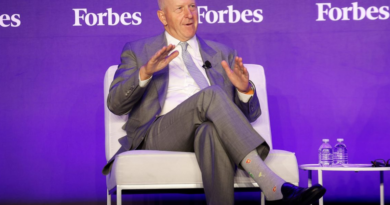xAI, Elon Musk’s OpenAI rival, is closing on $6B in funding and X, his social network, is already one of its shareholders
xAI, Elon Musk’s 10-month-old competitor to the AI phenom OpenAI, is raising $6 billion on a pre-money valuation of $18 billion, according to one trusted source close to the deal. The deal – which would give investors one quarter of the company – is expected to close in the next few weeks unless the terms of the deal change.
The deal terms have changed once already. As of last weekend, Jared Birchall, who heads Musk’s family office, was telling prospective investors that xAI was raising $3 billion at a $15 billion pre-money valuation. Given the number of investors clamoring to get into the deal, those numbers were quickly adjusted.
Says our source, “We all received an email that basically said, ‘It’s now $6B on $18B, and don’t complain because a lot of other people want in.”
Investors who’ve been lobbying to get into the deal for months hardly minded. Sequoia Capital and Future Ventures, the venture fund co-founded by Musk’s longtime friend Steve Jurvetson, are participating in the round.
Other participants are likely to include Valor Equity Partners and Gigafund, whose founders are also part of the inner circle of Musk, who famously blends the personal and the private. (Outreach to these investors went unreturned; xAI does not have a press function.)
Jurvetson sits on the board of SpaceX and was a director at Tesla until 2020. Gigafund co-founder Luke Nosek, who previously co-founded Founders Fund with investor Peter Thiel, was the first venture investor to write a check to SpaceX and has sat on its board since. Valor founder Antonio Gracias was among the earliest investors in Tesla; like Jurveston, he’s a former Tesla director and is also on the board of SpaceX.
Our source said it’s not entirely clear to every other investor who is in the deal because of the way the commitments were garnered. “It’s a Zoom call and it’s just you and Elon and Jared [on the other side] at a table with some engineers.”
The pitch, says this individual, is captivating.
xAI’s marketing literature already makes clear that the outfit’s ambition is to connect the digital and physical worlds, but it may not be widely understood that Musk plans to do this by pulling in training data from each of his companies, which include Tesla, SpaceX, his tunneling outfit Boring Company, and Neuralink, which develops computer interfaces that can be implanted in human brains.
Of course, another of Musk’s companies is X. The social media platform has already incorporated xAI’s months-old chatbot, Grok, into the platform as a paid add-on. Yet that’s just one piece of what Musk tells investors will become a sprawling virtual cycle.
With Grok, for example, X is both a customer and provides Grok with massive distribution. Eventually (goes the pitch), Grok will be fed data from Musk’s other companies, helping it to master the physical world in potentially endless ways, starting with truly self-driving cars.
Another likely beneficiary would be Tesla’s humanoid robot, Optimus. Today the Tesla robot is still in the lab, but Musk told analysts on a call earlier this week that Optimus will be able to perform tasks in Tesla’s factories by the end of this year. Even if that timeline proves ambitious, these slick assistants may be able to do more — and faster than previously imagined — if Musk’s overarching vision plays out.
In the meantime, the most immediate beneficiary of xAI’s burgeoning momentum may be X itself. Though the platform has become something of a toxic cesspool in the 1.5 years since Musk bought it and subsequently lost much of its value, Musk had already seen to it that X owns a stake in xAI, so it will benefit from whatever upside the AI outfit sees.
What it all means for OpenAI — which became the fastest growing startup in history last year — is an open question. Musk has had OpenAI in his crosshairs since the company’s surge began, following the release of its ChatGPT chatbot.
Musk cofounded OpenAI in 2015 and left its board in 2018 over disagreements about the direction of the outfit, which began life as a nonprofit and later evolved into a for-profit entity. Musk has since publicly harangued OpenAI cofounder Sam Altman and poked fun at the brand, proposing that it instead call itself ClosedAI.
Last month, when Musk open sourced the architecture of xAI’s earliest chatbot “Grok-1,” meaning that anyone can now download and alter it, the move was another part of his ongoing campaign to distinguish his efforts from OpenAI, which has not shared its secret sauce with the world, and which Musk is now suing.

